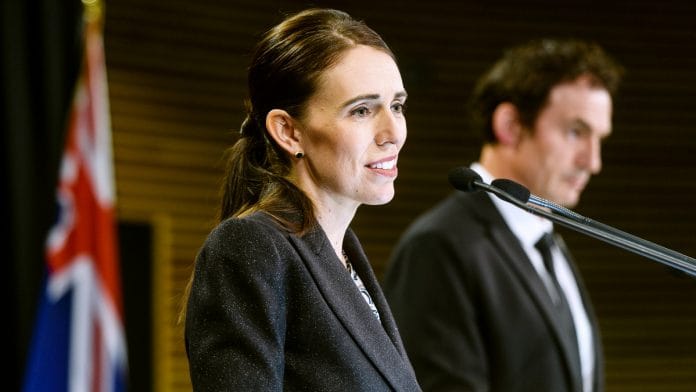As New Zealanders prepare to go to the polls, stocks are surging to record highs and the property market is booming.
It’s a far cry from three years ago, when investors were spooked by the prospect of Jacinda Ardern’s Labour Party taking power. Now, as polls show her winning a decisive victory in the Oct. 17 election, there’s very little angst about what lies ahead.
“Most people probably think we’re not looking at too much of a change from what we’ve had so far,” said Sharon Zollner, chief economist at ANZ Bank New Zealand in Auckland. “A lot of the big scary stuff has been ruled out already, so the uncertainty that usually comes with an election has been resolved in advance.”
Ardern has put the nation’s recovery from the pandemic at the center of her re-election campaign and flagged little in the way of big policy initiatives for a second term — unlike 2017, when major reforms such as a capital gains tax were on the table. That’s allowing investors to focus on record-low interest rates, prompting a rush into assets like shares and property.
The S&P/NZX 50 stock index fell Thursday for the first time in 12 days after surging to record highs this week. The benchmark declined 0.3% but has still gained 6.5% this month alone.
The housing market, which normally takes a breather in the lead-up to an election, is also running hot. A report this week showed September residential property sales surged 37% from a year earlier, the busiest month since early 2017. House prices have climbed 7.6% in the past year.
“The drop in interest rates is driving house prices even higher, and assets of all types,” said Dominick Stephens, chief New Zealand economist at Westpac Banking Corp. in Auckland. “The threat of a capital gains tax was there at the last election, it was a big deal. This time there’s no policy whatsoever being offered from any party that will make a jot of difference to house prices.”
Before the last election, investor anxiety about an Ardern-led government was evident, with the kiwi dollar falling each time a poll showed Labour ahead.
Business confidence slumped before and after the 2017 vote on the prospects of higher minimum wages and environmental reforms that could increase costs. There was concern about Labour’s reforms to the central bank and its pledge to consider a capital gains tax to help address wealth inequality.
In the event, Ardern ditched plans for that tax midway through her first term over concerns it was too politically risky. And while the government did ban foreigners from buying local property, it failed to deliver on a promise to build tens of thousands of new homes to help address a shortage of supply.
Labour has also proved to be more conservative in its fiscal and economic management than many observers had feared. If re-elected, Ardern’s only tax reform will be an extra levy on those who earn more than NZ$180,000 ($120,000) a year. The opposition National Party, on the other hand, is promising to stimulate growth with temporary tax cuts, which Ardern says are unaffordable.
Today, business confidence is recovering, rising to a 10-month high in October even as the border remains closed, decimating the tourism industry and threatening to drive up unemployment. That may be because, unlike last time, the outcome of the election seems clear and firms know what to expect from Ardern, said Zollner.
“It’s not looking like a nail biter,” she said. “Businesses don’t like uncertainty, and that aspect is missing.”- Bloomberg
Also read: How women have been better leaders than men during the pandemic






